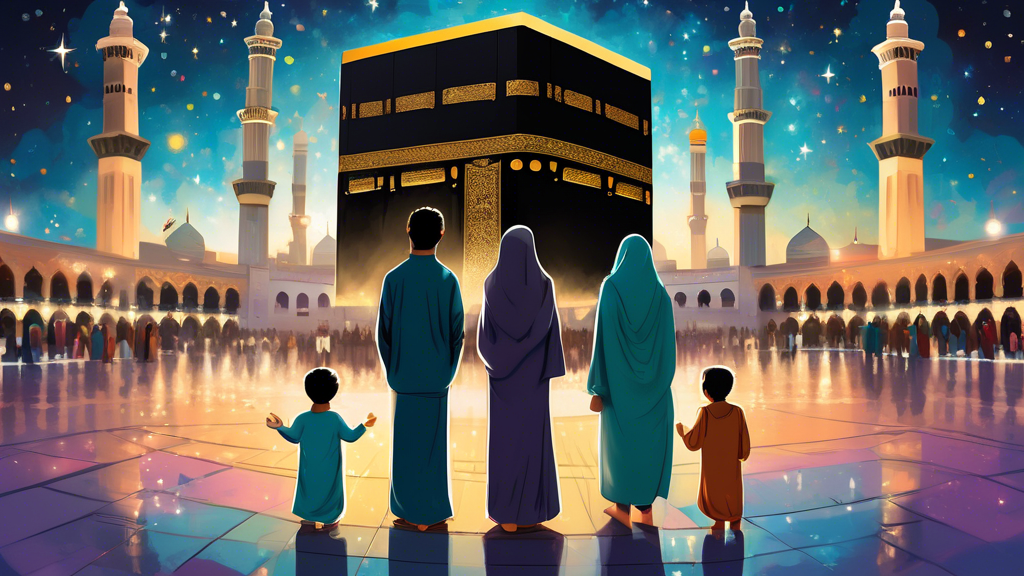Introduction to Duas for Umrah
Umrah, often known as the ‘lesser pilgrimage’ or ‘minor pilgrimage’, is a spiritual journey to Makkah, Saudi Arabia that can be undertaken at any time of the year. Unlike Hajj, it is not obligatory but is highly recommended in Islam. Performing Umrah involves a series of rituals, each symbolizing the monotheistic beliefs and submission to Allah. An integral part of maximizing the spiritual benefits of Umrah involves reciting certain duas (supplications) at various stages of the pilgrimage. These duas enhance the experience and help pilgrims maintain a spiritual connection with Allah.
Preparing for Umrah: Duas to Recite Before Departure
Preparation for Umrah spiritually and mentally is as crucial as the physical preparations. Before setting off on this sacred journey, Muslims often recite specific duas to seek Allah’s blessings and ensure a journey free from difficulties. Here are a few duas to recite:
Dua for Traveling
Allahuma inni a’uzu bika min wa’tha’i as-safar, wa kaabatil manzar, wa su’il munqalabi fil-mali wal-ahli wal-walad.
(O Allah, I seek refuge with You from the difficulties of travel, from having a change of hearts and being in a bad predicament, and I seek refuge with You from an ill-fated outcome with wealth and family.)
Dua for Intention of Umrah
Labbaik Allahumma Umrah.
(Here I am, O Allah, for Umrah.)
Key Duas During Tawaf
Tawaf, the act of circumambulating around the Kaaba seven times, is a fundamental rite of Umrah. Each circuit (or round) has recommended supplications that a pilgrim can recite, though these are not mandatory. While reciting any Quranic verse or prayer is commendable, some specific supplications focus on each round’s spiritual essence.
During Tawaf
First three rounds: Rabbana Aatina fid-dunya hasanah, wa fil-akhirati hasanah, wa qina ‘azhaban-nar.
(Our Lord, give us good in this world and good in the Hereafter, and save us from the punishment of the Fire.)
Remaining rounds: Subhan Allah, Alhamdulillah, La ilaha illallah, Allahu Akbar.
(Glory be to Allah, All Praise is to Allah, There is no god but Allah, Allah is Great.)
Duas for Sa’i (Walking between Safa and Marwah)
Sa’i, which involves walking seven times between the hills of Safa and Marwah, is a re-enactment of Hagar’s search for water for her son Ishmael. This act symbolizes a Muslim’s faith and trust in Allah’s provision. The following dua is traditionally recited during Sa’i:
At Safa and Marwah
Inna as-Safa wal-Marwata min sha’a’irillah. Abda’u bima bada’Allah bihi.
(Indeed, Safa and Marwah are among the Symbols of Allah. I start with what Allah started with.)
Duas for Completion of Umrah
Upon the completion of Umrah, it is a moment of immense personal fulfillment and spiritual elevation. Making dua after completing the rituals of Umrah is crucial as it is believed that it is a time when Allah is most likely to answer prayers. Pilgrims typically pray for their own and their family’s well-being, forgiveness for themselves and their deceased loved ones, and for global peace and prosperity.
General Dua after Umrah
Allahumma innaka ‘afuwwun tuhibbul ‘afwa fa’fu ‘anni.
(Oh Allah, You are Forgiving, You love forgiveness, so forgive me.)
Conclusion
Reciting duas throughout the Umrah pilgrimage serves as a reminder of a Muslim’s fidelity to their faith and enhances their connection to Allah. While the above list outlines some essential supplications, pilgrims are encouraged to make personal prayers and supplications that reflect their innermost thoughts and feelings. Through these spiritual conversations with Allah, Muslims solidify their personal bond and commitment to their Creator.
